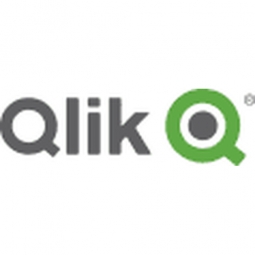Customer Company Size
Large Corporate
Region
- Europe
Country
- France
- Germany
- Italy
- Spain
- United Kingdom
Product
- QlikView
Tech Stack
- Microsoft SQL
- Excel spreadsheets
- salesforce.com
Implementation Scale
- Enterprise-wide Deployment
Impact Metrics
- Productivity Improvements
- Brand Awareness
Technology Category
- Analytics & Modeling - Real Time Analytics
Applicable Industries
- Consumer Goods
- Retail
Applicable Functions
- Sales & Marketing
- Business Operation
Use Cases
- Supply Chain Visibility
Services
- Data Science Services
About The Customer
Yamaha Music Europe is a wholly owned subsidiary of Yamaha Corporation of Japan. The company is responsible for selling Yamaha musical instruments and audio-visual equipment across Europe. Based in Hamburg, Germany, the company is accountable to head offices for sales operations in France, Germany, Italy, Scandinavia, Spain, and the United Kingdom. The decision in 2009 to consolidate Yamaha’s sales subsidiaries in Europe was based on the view that, more so than in the past, Yamaha needs to think of Europe as one market. The European subsidiary also wanted to offer the head office in Japan more up-to-date performance indicators to improve management efficiency and the competitiveness of operations, and to help expand investment in growth domains.
The Challenge
Yamaha Music Europe, a subsidiary of Yamaha Corporation of Japan, is responsible for selling Yamaha musical instruments and audio-visual equipment across Europe. The company faced the challenge of harmonizing sales logistics and other data from six European sales divisions. They needed to unify all information into a single BI tool to facilitate cross-selling and upselling across Europe. The company also wanted to offer managers tools for immediate ad hoc query and analysis of data. Prior to the consolidation, the six subsidiaries held business critical information in disparate databases. From a business perspective, Yamaha was keen to improve the potential for cross selling and upselling across the region to take advantage of the growing integration of European markets and the growth of sales via internet.
The Solution
Yamaha Music Europe deployed QlikView to measure key indicators for an internationally dispersed business such as sales reporting, margins, logistics, and profitability among others. The company used QlikView for analysing the performance of its logistics and purchasing departments and also to drill down into other management information. The company has some extra data such as budgets figures on Excel spreadsheets that is being incorporated into QlikView reports. Advanced sales reporting was the first QlikView application deployed at Yamaha with help from Qlik partner Outcome, a German consultancy. The application gives management a better way to control and monitor product performance and offers sales representatives an improved view of their own performance—at the click of a mouse.
Operational Impact

Case Study missing?
Start adding your own!
Register with your work email and create a new case study profile for your business.
Related Case Studies.
.png)
Case Study
Improving Vending Machine Profitability with the Internet of Things (IoT)
The vending industry is undergoing a sea change, taking advantage of new technologies to go beyond just delivering snacks to creating a new retail location. Intelligent vending machines can be found in many public locations as well as company facilities, selling different types of goods and services, including even computer accessories, gold bars, tickets, and office supplies. With increasing sophistication, they may also provide time- and location-based data pertaining to sales, inventory, and customer preferences. But at the end of the day, vending machine operators know greater profitability is driven by higher sales and lower operating costs.

Case Study
Improving Production Line Efficiency with Ethernet Micro RTU Controller
Moxa was asked to provide a connectivity solution for one of the world's leading cosmetics companies. This multinational corporation, with retail presence in 130 countries, 23 global braches, and over 66,000 employees, sought to improve the efficiency of their production process by migrating from manual monitoring to an automatic productivity monitoring system. The production line was being monitored by ABB Real-TPI, a factory information system that offers data collection and analysis to improve plant efficiency. Due to software limitations, the customer needed an OPC server and a corresponding I/O solution to collect data from additional sensor devices for the Real-TPI system. The goal is to enable the factory information system to more thoroughly collect data from every corner of the production line. This will improve its ability to measure Overall Equipment Effectiveness (OEE) and translate into increased production efficiencies. System Requirements • Instant status updates while still consuming minimal bandwidth to relieve strain on limited factory networks • Interoperable with ABB Real-TPI • Small form factor appropriate for deployment where space is scarce • Remote software management and configuration to simplify operations

Case Study
Digital Retail Security Solutions
Sennco wanted to help its retail customers increase sales and profits by developing an innovative alarm system as opposed to conventional connected alarms that are permanently tethered to display products. These traditional security systems were cumbersome and intrusive to the customer shopping experience. Additionally, they provided no useful data or analytics.

Case Study
How Sirqul’s IoT Platform is Crafting Carrefour’s New In-Store Experiences
Carrefour Taiwan’s goal is to be completely digital by end of 2018. Out-dated manual methods for analysis and assumptions limited Carrefour’s ability to change the customer experience and were void of real-time decision-making capabilities. Rather than relying solely on sales data, assumptions, and disparate systems, Carrefour Taiwan’s CEO led an initiative to find a connected IoT solution that could give the team the ability to make real-time changes and more informed decisions. Prior to implementing, Carrefour struggled to address their conversion rates and did not have the proper insights into the customer decision-making process nor how to make an immediate impact without losing customer confidence.









